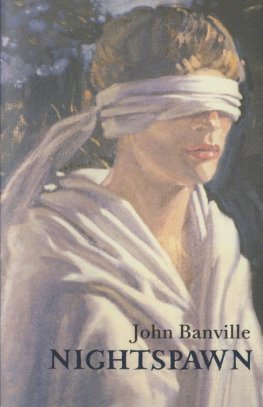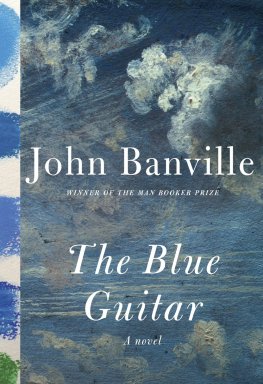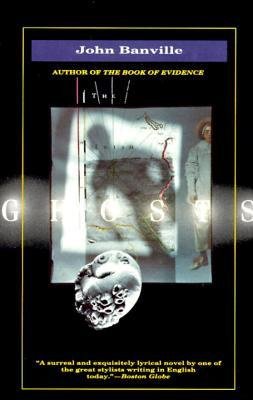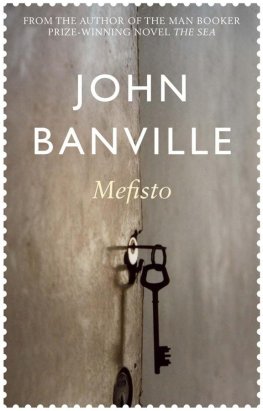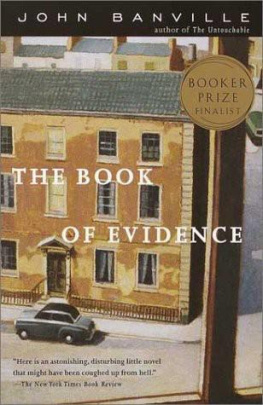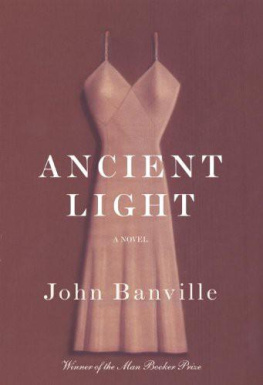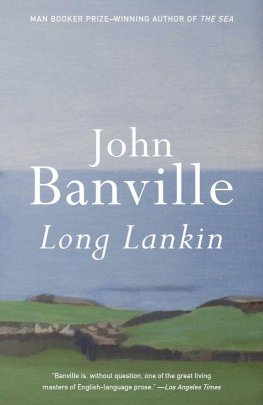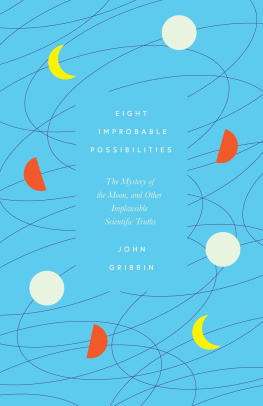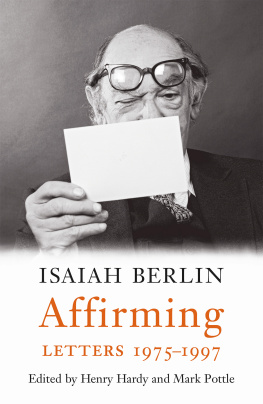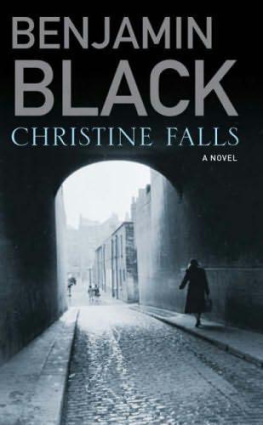1
I am a sick man, I am a spiteful man. I think my life is diseased. Only a flood of spleen now could cauterize my wounds. This is it. Hear the slap and slither of the black tide rising. The year has blundered through another cycle, and another summer has arrived, bringing the dogrose to the hedge, the clematis swooning to the door. The beasts are happily ravening in the sweltering fields of June. How should I begin? Should I say that the end is inherent in every beginning? My hyacinth is dead, and will never bloom again, but I keep the pot, like Isabella, and water with my tears in vain the torn and withered roots. What else is there for me to do? They took everything from me. Everything.
2
The island torments me. I open the box and there it is, an image cut from jewels, quivering between the azure lid and bed of sapphire silk. At dawn the sky bloomed with a warm wet shade of pearl, at evening was suffused with a delicate heartrending lavender. At first I knew no rest there. My life was fitful, disturbed by savage dreams. The land appeared arid and irretrievably dead, forsaken by the seasons. The sea was stupefying in the monotonous regularity of its tides. I scurried over the rocks, averting my eyes and mind from the harshness of the desert around me, saying, my life is more than this, the value of my life lies in the sum of all I have lost by coming here. But always I was left, alone, stranded, gaping at the blazing brown hills, the shattered sea, my brain a bright blank void. I lived on a spit which turned me slowly through the heat of the days, my vision fractured by light from the sky, from stark white walls, by light clattering on the sea in shards. Sometimes even the sheen of sweat on my own skin was enough to scorch my eyeballs. At last I surrendered. At the still centre of a certain day, while a hot wind gasped out of the north, I discovered the desert which lay within me. It was not a totally unpleasant discovery. By inexplicable means it freed me. I began to notice the thousand small signs of the seasons which all along had been stirring bravely but unnoticed on the parched earth. The lines of hill and sky no longer looked to me like the silent reefs of an alien planet, but were perceived to hold within them a thrilling purity and logic, a simplicity of staggering proportions. The two constants, sea and sky, now set the rhythm of my days. Time as I thought I knew it was put out of joint. I became a master of improvisation. Peace was the easiest thing to find, and my taste for drama was sated by fits of lust and their consequences. I lost the tedious intensity which had tormented me all my years. I learned to relax. I was happy. That was the island. I sailed there by devious and forlorn ways, and there it was one day in a late spring that Julian and his cursed brood sailed with majestic aplomb into my life. My life. Imagine a wry smile.
3
Clear sea light blazed upon the harbour that day, upon the water, splintered into swaying columns of fierce blue and gold. A boat with a black sail glided silently across the bar, and down on the beach the fishermen were beating squid on the rocks. The fat pink pelican, mascot of the island, morosely eyed the quayside from its perch on the prow of a grounded skiff. I sat by a table in the little square before Constantinous taverna. The place was almost empty at that early hour. There was a mad old man in a dirty hat, talking earnestly to his dog, a gigantic one-eyed beast with slavering jaws. In a far corner, the village barber slept and snored with a handkerchief over his face. I looked at the pelican. The pelican looked at the dog. The dog barked suddenly, and the old man, with a terrible roar, gave it a clout of his stick and sent the miserable animal howling across the quay. The barber awoke, and clawed the handkerchief from his mouth. He rubbed his eyes. His face opened in a yawn.
Boom.
I started in fright. The white liner was already dropping its anchor beyond the harbour bar. There came the grinding of the winch, the ringing shouts of sailors. Four weatherbeaten trawlers coughed their way across the water, and stopped, rearing and rolling in the wash, beside the four step-ladders which came clattering down from the liners deck. I left the table and strolled out along the pier. The sun was licking the last patches of dew from the flagstones, and a moist green odour was in the air. The trawlers returned and disgorged their passengers on the quay. Hot and flustered tourists wandered groggily among the jumble of baggage. Screaming childrens ears were boxed with furious abandon. The village opened like a mouth and the widows came streaming out, waving little pasteboard cards which described, in decorous though erratic English, the hospitality and splendour of their vacant rooms. The harsh Greek voices and bewildered little squeaks of the tourists grated against each other in the tranquil morning. The boats chugged and spluttered, and the sea birds shrieked, beside themselves at the sight of such potential targets. Above the clamour, the liners siren boomed majestically. I was jostled and jabbed on all sides, and a fearsome Scandinavian lady, all ash-blonde plaits and tanned fat calves, struck me on the knee with her suitcase. When I turned to complain, she glared at me, baring her fine strong teeth. I retreated, and stepped up on the sea wall to implement my modest sixty-seven and one half inches. The German was the last passenger to disembark. He was not alone. I fought my way to his side, and touched his shoulder.
Bonjour, I said brightly. Je mappelle White, Ben White. Peut-tre vous
What?
He whirled about, with one elbow raised defensively, and peered over the top of my head. He was a tall, gangling creature dressed in an extraordinary tubular suit, which must have once been black but was now a shiny bluebottle green. His fearsome yellow teeth stood marooned like crooked tombstones in the midst of an awkward mouth, and the spikes of red hair standing upright on his diminutive skull glittered in the sunlight like severed strands of wire. Through battered steel-rimmed spectacles two small grey eyes peered out with an expression of slowly dawning surprise, as though grappling with the baffling slip and slide of a world continuously changing. I lifted an uncertain hand and said in more certain English,
You are Erik Weiss, arent you? My name is White. We met once, some time ago, in Doctor Rabins shop.
He nodded swiftly, his head wobbling at the end of its pale stalk of neck.
Yes yes, yes, I know you. I remember. How are you?
His gaze slithered down from my face, crossed the space between us to his large brown mountaineering boots, paused briefly there, and climbed his own legs. Having verified himself, he yawned, and put his head on one side and smacked a cupped palm sharply to his ear. One of the Scandinavians sawing elbows poked him in the ribs, and, mistaking the direction from which the prompt had come, he quickly turned and swept his companion forward.
This is Andreas.
Andreas was a dark Greek gentleman with a handsome face, furious eyes, and a hideously crooked back. He gave me a wisp of a smile and crunched my fingers in his pale hand. With a rigid forefinger, Erik inscribed a swift little cross beneath his nose, sniffed, then plunged the finger on to point across the quay.
Breakfast.
We went to my table, matching our pace to Andreass complicated lurch. The waiter came, a mournful boy with a failed moustache, and Erik ordered coffee and eggs for the three of us. I wanted to say that I had already eaten, but instead I cleared my throat and gravely considered the pelican. It clacked its beak disdainfully and looked away. The morning was becoming intolerably hot and gummy. Out over the sea a gathering of ugly black cloud was smeared like a grease stain on the sky. Erik unwound the spectacles from behind his ears, folded them carefully, and jabbed his fingers into his eyes. Andreas sat between us in a perfect and unsettling stillness, his thin lips pursed.

